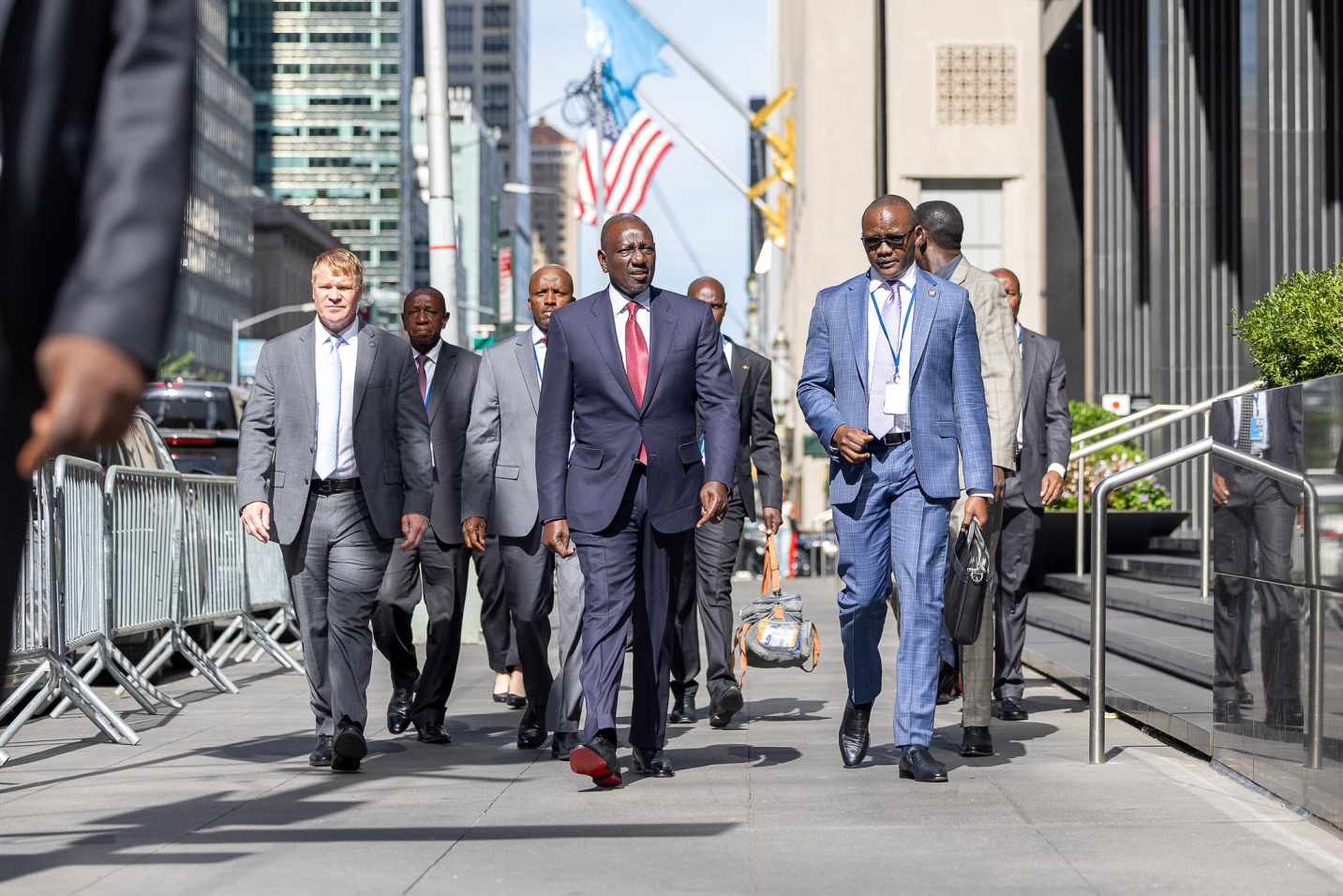President William Ruto has renewed calls for urgent reforms at the United Nations, warning that the global body risks irrelevance if it continues to operate under outdated structures.
He said the organisation must undergo fundamental changes to reflect modern realities, stressing that Africa deserves a permanent seat at the UN Security Council.
Speaking in New York on Tuesday after attending the opening of the 80th session of the United Nations General Assembly (UNGA), Ruto said Africa’s 1.4 billion people cannot continue to be sidelined in global decision-making. He emphasised that the reform debate is no longer about possibility but about timing.
“The reform of the United Nations is no longer a matter of if but when, and that the time is now,” he said, adding that without change the UN will remain undemocratic, unrepresentative and unfit for purpose.
Ruto further argued that change must also extend to global financial systems, which he said continue to disadvantage developing nations. “We must reform the international financial architecture so that it becomes more representative so that we have greater say (and) better representation so that we can be able to deal with challenges in a manner that represents the views of everyone,” he told delegates.
His call comes as momentum for change builds within the UN itself. Secretary General António Guterres has consistently cautioned that the Security Council must adapt to the “world of 2025, not 1945,” warning that the body risks becoming obsolete if it continues to reflect the post–Second World War order.
The Security Council has faced criticism for being paralysed by the veto powers of its permanent members, hindering decisive responses to global conflicts including the wars in Gaza and Ukraine.
This year’s Assembly, held under the theme “Better together: 80 years and more for peace, development and human rights,” has seen reform top the agenda alongside climate change, humanitarian emergencies and mounting geopolitical tensions.
Leaders such as Brazil’s Luiz Inácio Lula da Silva and US President Joe Biden have already addressed the forum, underscoring its role as the most inclusive stage for international dialogue.
Beyond security, calls for fairness in the global financial system have grown louder. Developing nations, particularly in Africa, argue that existing structures favour wealthy economies while leaving poorer countries with limited access to affordable financing.
Advocates say an inclusive financial system is necessary to ensure fairness and resilience in the face of global challenges.
Ruto is expected to present Kenya’s national statement to the General Assembly on Wednesday, where he will further push for reforms to institutions created in the mid-20th century so they can remain relevant in the 21st.
He is accompanied by Prime Cabinet Secretary Musalia Mudavadi, Health Cabinet Secretary Aden Duale, and other senior officials.

